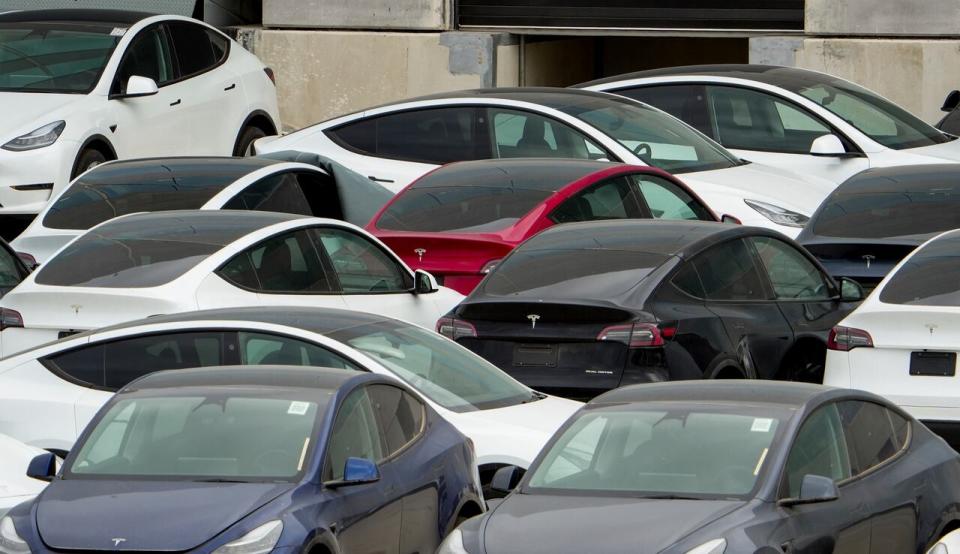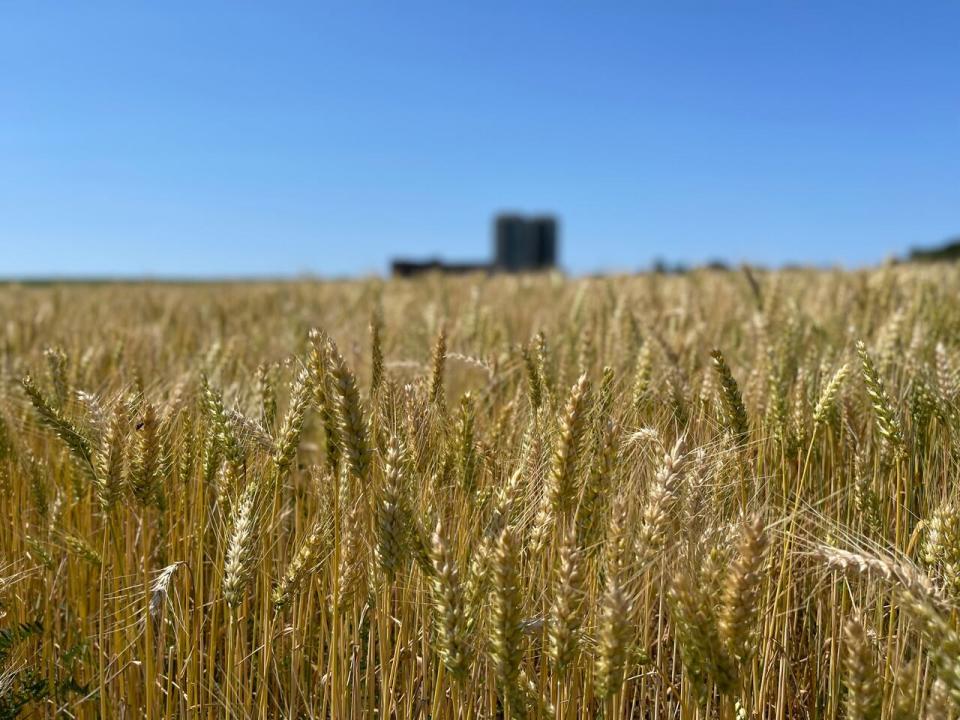Alberta's agriculture sector worries about retaliation as Canada mulls tariff hikes on Chinese EVs
International trade experts say several sectors could be at risk of counter-tariffs or boycotts if Canada moves forward with hiking tariffs on Chinese-made electric vehicles.
The agriculture sector, in particular, is worried it could be the main target of retaliation.
On Monday, the federal government announced a 30-day consultation period to explore policy responses to China's "unfair trade practices" that are affecting the domestic market. It will announce trade measures after consultations.
A potential response is a surtax on top of tariffs for EVs from China, similar to a move by the United States in May. The European Commission also announced provisional tariffs of between 17 and 38 per cent on Chinese EVs starting July 4.

Carlo Dade, director of the Canada West Foundation's trade and trade infrastructure centre, says he suspects the outcome of the consultation is preordained, given significant pressure from the U.S. to align with their policy on China.
And that could mean bad news for some sectors.
"Taking action like putting on tariffs — you naturally expect retaliation. It's part of the international trade playbook, tariff retaliation," said Dade.
Dade says if China does decide to go this route, he expects agriculture and livestock to be among their key retaliation targets, as well as other products the country could source from elsewhere or cut down on.
According to the foundation's latest brief on China's relationship with Canada's West, China recently targeted France's agricultural imports — "an easy target" — during recent disputes. Dade says there are lessons from that situation for Canada.

Gordon Houlden, director emeritus of the China Institute at the University of Alberta, agrees.
He says he wouldn't be surprised to see any retaliatory measures, and he predicts sectors that China has targeted in the past are all potentially vulnerable.
"We've seen pork, beef and canola hit already over the past few years, and so it's possible they'll go back to the same list, but not necessarily," said Houlden.
"I'm pretty confident the Chinese will wait until probably the end of the consultation and then pick their targets."
Houlden says regardless how it plays out, history shows China's counter-tariffs and boycotts tend not to be permanent.
'It's our livelihood'
Near Claresholm, south of Calgary, Stephen Vandervalk is worried about the implications for Alberta's agriculture industry.
He's the vice-president of the Wheat Growers Association and he also farms canola, barley, durum and hay.
"Absolutely every decision you make with China affects something else — that's what they do. They will hold another industry hostage over a decision made over here," said Vandervalk.

He's seen this happen before, like when China banned Canadian canola for three years. He says farmers are still reeling today from the effects of that ban, which officially lifted in 2022.
"China needs to retaliate somehow, and historically, they've retaliated [by] not buying agricultural products."
China is among Canada's top destinations for grain and oilseed exports.
For Vandervalk, the blame falls on the federal government. He wishes they'd keep these consequences in mind while making these decisions.
"It's very frustrating because it's our livelihood."
Back at the Canada West Foundation, Dade says this political struggle probably isn't ending any time soon.
"Balancing the pressure from the U.S. to align with their policy on China versus the needs of our export economy — where China is the largest producer and consumer of much of what we export in Western Canada — is going to be the struggle for this generation," said Dade.
"China is not going anyplace, neither is the U.S., and we're kind of stuck between the two. We're going to have to figure this out."
Houlden says the government and industry should double down on diversifying markets to mitigate future risks.
CBC News reached out to Alberta's Ministry of Agriculture and Irrigation but did not receive comment by the time of publication.


